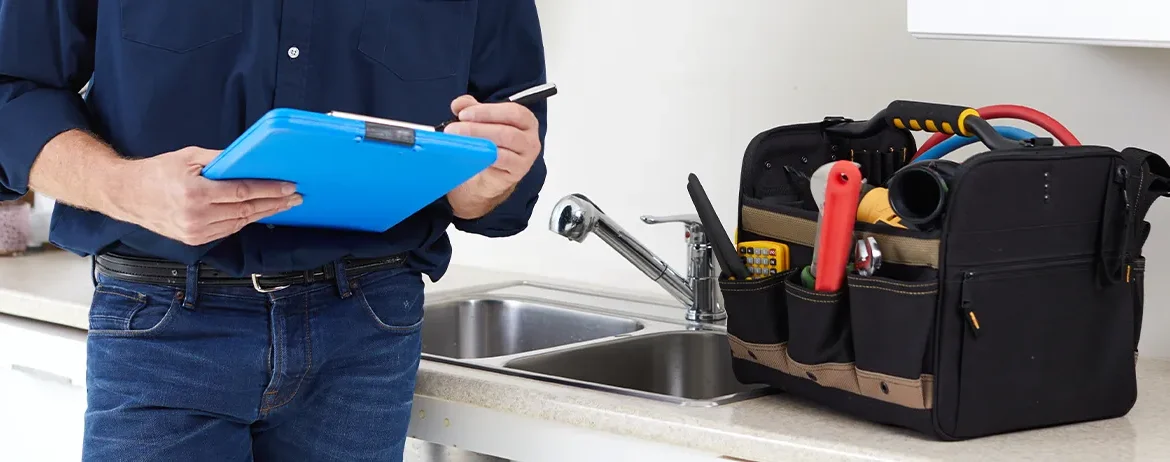IS AN INSPECTION NECESSARY?
For any property you are thinking of purchasing, you have the right to arrange an inspection by a professional inspector of your choice. You should always exercise your option to have the physical condition of the property and its inclusions inspected. Many of the more severe and expensive problems such as mechanical, electrical, structural and plumbing are not noticeable to the untrained eye. If repairs are needed, we will negotiate those issues during the escrow timeframe. A professionally conducted home inspection followed by a written evaluation is standard procedure in home buying.ARE INSPECTORS LICENSED?
You have the right to hire whomever you choose to conduct your inspection. However, you’re responsible for the parties that you bring to the property, so it is strongly recommended that you select a licensed and bonded home inspector. Such a qualified person will be better versed in the intricacies of home construction that vary due to the age and style of the home.WHAT DOES AN INSPECTION ENTAIL?
A qualified inspector will follow Standards of Practice in conducting their inspection. The inspection consists of a physical inspection of the home followed by a summation walk through with the purchaser present and a written report detailing their findings. They report on the general condition of the home’s electrical, heating and air systems, plumbing, roof, visible insulation, walls, ceilings, floors, windows, doors, foundation, and visible structure. The inspection is not designed to criticize every minor problem or defect in the home. No home is perfect. It is intended to report on damage or problems that require repair for the well being of the home and that might require significant expense.BUYER EDUCATION IS NECESSARY
The primary purpose of the inspection is to educate the buyer to make an informed purchasing decision. A good home inspector knows how the home’s many systems and components work together and how to minimize the damaging effects of sun and water. The buyers’ attendance at the summation of the inspection provides them with an overall idea of possible future repair costs and maintenance routines. This is valuable information, which could increase the life span, and perhaps the future selling price of the home.TIME AND FEE GUIDELINES FOR THE INSPECTION
 The time necessary to properly inspect a home, as well as the fee charged by an inspector, varies according to market location, the size and age of the home, and the individual inspection company. However, you can expect that it will take an average of one and a half to three hours to competently inspect a typical three-bedroom home, with an average cost of $400 to $800.
The time necessary to properly inspect a home, as well as the fee charged by an inspector, varies according to market location, the size and age of the home, and the individual inspection company. However, you can expect that it will take an average of one and a half to three hours to competently inspect a typical three-bedroom home, with an average cost of $400 to $800.
QUESTIONS TO ASK WHEN HIRING AN INSPECTOR
-
- How much do you charge for the inspection?
- When will the final report be ready?
- Will it be typed? Will it include pictures?
- Will you tell me if I have asbestos, aluminum wiring or galvanized steel pipes in the home?
- Can you determine the condition and estimated life of the roof?
- Will you determine the condition of the foundation?
- Do you inspect pool/spa areas and operating systems, in-ground water sprinklers, lighting systems and low voltage systems?
- Do you inspect chimneys?
- Do you inspect the attic and ductwork?
- What other areas do you inspect?
- When can you do the inspection?
- What time should I be there?
ADDITIONAL INSPECTIONS
Your Home Inspector may recommend further inspections be done by more specific individuals. The items that sometimes require further inspection are the chimney, roof, pool and spa.In almost all transactions, we also recommend the following two inspections.
PEST INSPECTION
This is often called a termite inspection. The purpose of this inspection is to determine if there is any visible wood rot present in the home, whether it is due to the presence of termites or water intrusion. The pest inspection report will be broken into two parts. Section I calls out areas where damage currently exists and recommends corrective action. Section II calls out areas where damage could occur in the future if corrective action is not taken. Some sellers will have already obtained a pest inspection report and will include with their disclosures. If not, we will recommend that you hire a pest inspector as part of your discovery.
SEWER LINE INSPECTION
I think we can all agree that when you buy a home, you expect the sewer to be functional. The only way to check this is to hire a qualified plumber to run a camera down the sewer line and report the findings. The original material used for the sewer line may be deteriorating beyond its useful lifespan or the line could be infringed upon by tree roots or other plant life.
The following links will provide valuable information on the home buying process:
- PRE-APPROVAL VS. PRE-QUALIFICATION – Pre-approval involves a comprehensive review of your financial background by a lender, while pre-qualification is a preliminary assessment based on basic information provided by you.
- CLOSING COSTS – Closing costs are the fees and expenses associated with finalizing a real estate transaction, typically including loan origination fees, appraisal fees, and title insurance.
- PROPERTY TAXES – Property taxes are assessed by local governments based on the value of a property and are used to fund public services such as schools, roads, and emergency services.
- BUYER DO’S AND DON’TS – Advice for buyers on getting pre-approved for a mortgage, researching neighborhoods thoroughly, and more, while covering things to avoid, such as making major purchases before closing and skipping the home inspection.
- CONSIDER YOUR BUYING OPTIONS – When considering your buying options, Dore and Geoff Baker encourage you to explore different neighborhoods and property types to find the best fit for your needs, ensuring you make a well-informed decision.
- MAKING AN OFFER – When it comes to making an offer on a home, Dore and Geoff Baker advise careful consideration and strategic planning to ensure you present a compelling offer that aligns with your budget and goals.
- KEY CONCEPTS – Understanding the key concepts in making an offer on a home, including earnest money, escrow, contingencies, and title insurance, is crucial for a smooth and successful real estate transaction.
- DISCLOSURE & DISCOVERY – Disclosure and Discovery rules ensure that buyers are fully informed about the property’s condition and any potential issues before completing the purchase.
- CLOSING ON YOUR NEW HOME – The final step in the home buying process, where ownership is transferred from the seller to the buyer, and all remaining paperwork and payments are completed.
- BUYER’S ESCROW PLANNING TIMELINE – Use this chart to draft your buyer’s escrow planning timeline, ensuring you stay on track and meet key deadlines throughout the home buying process.

